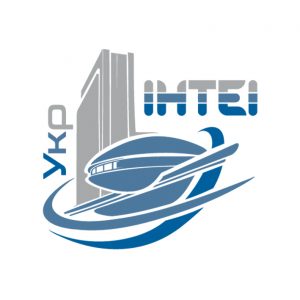http://doi.org/10.35668/2520-6524-2025-3-02
Balanchuk I. S. — Head of the Department, State scientific institution “Ukrainian Institute of Scientific and Technical Expertise and Information”, 180, Antonovycha Str., Kyiv, Ukraine, 03150; +38 (044) 521-09-81; slavira218@gmail.com; ORCID: 0000-0002-5179-7350
SCIENTIFIC AND TECHNICAL COOPERATION WITHIN THE FRAMEWORK OF INTERNATIONAL BILATERAL PROJECTS: ACTUAL SITUATION, DIFFICULTIES, PROSPECTS
Abstract. The paper analyzes the current state, defines the problems and outlines the prospects for the development of scientific and technical cooperation within the framework of international bilateral projects. The main attention is focused on the regulatory framework for such projects in Ukraine and abroad (EU, USA, Japan), their organizational structure, sources of funding and criteria for assessing efficiency and effectiveness.
It is determined that international bilateral scientific and technical projects are an effective tool for international interaction that promotes innovative development, technology transfer and scientific mobility. The article reveals various approaches to the implementation of such projects in Ukraine’s partner countries, emphasizing the priority of private financing and commercialization in foreign models, while in Ukraine the main support is state support.
A comparative analysis of the criteria for the effectiveness of international bilateral scientific and technical projects is carried out: scientific (publications, patents), economic (implementation in production, startups) and social (creation of jobs, personnel qualifications). Particular attention is paid to examples of successful joint Ukrainian-German projects and their future.
Practical recommendations for improving the system of international bilateral scientific and technical projects in Ukraine have been developed: setting priorities, monitoring, institutional support, increasing human resources, focusing on implementing results, and financial diversification. The importance of integrating Ukraine into the European research space, adapting to the challenges of martial law, and the role of public support for successful cases are noted.
Thus, the work comprehensively outlines modern challenges and opportunities for improving the efficiency of implementing bilateral projects of Ukraine in the international arena.
Keywords: developments and technologies, international scientific cooperation, technology transfer, innovative development, legal regulation, efficiency criteria.
REFERENCES
- (2024). Report on the Activities of the National Research Foundation of Ukraine in 2023. Research Foundation of Ukraine. Kyiv, 96 p. Retrieved from: https://nrfu.org.ua/wp-content/uploads/2024/05/report_2024_engl.pdf.
- (2025). Association to Horizon Europe. European Commission. Retrieved from: https://research-and-innovation.ec.europa.eu/strategy/strategy-research-and-innovation/europe-world/international-cooperation/association-horizon-europe_en.
- (2021). Academic Research and Development. Science and Engineering Indicators. Retrieved from: https://ncses.nsf.gov/pubs/nsb20213.
- (2025). Specific Support for Ukrainian Research and I European Commission. Retrieved from: https://research-and-innovation.ec.europa.eu/strategy/strategy-research-and-innovation/europe-world/international-cooperation/association-horizon-europe/ukraine_en.
- (2025). Funding Programs in Japan. Japan Science and Technology Agency. Retrieved from: https://www.jst.go.jp/EN/programs/funding.html.
- (2025). International Affairs. Germany. Federal Ministry of Reserch, Technology and Space. Retrieved from: https://www.bmbf.de/EN/Research/InternationalAffairs/internationalaffairs_node.html.
- Schwarz, , & Rudyak, M. (2023). China’s Development Co-Operation. OECD Development Co-operation Working Papers, No. 113. Paris. 69 p. Retrieved from: https://www.oecd.org/content/dam/oecd/en/publications/reports/2023/12/china-s-development-co-operation_ea34f6c2/2bbe45d2-en.pdf.
- (2023). Vidkryttia Ofisu Horyzont Yevropa v Ukraini (20.12.2023 r., m. Kyiv) [Opening of the Horizon Europe Office in Ukraine (December 20, 2023, Kyiv)]. Erasmus+UA. Retrieved from: https://erasmusplus.org.ua/news/vidkryttya-ofisu-goryzont-yevropa-v-ukrayini-20-12-2023-r-m-kyyiv/ [in Ukr.].
- (2024). Performance Of European Partnerships. Biennial Monitoring Report 2024 on partnerships in Horizon Europe. European Commission. Luxembourg: Publications Office of the European Union, 531 Retrieved from: https://era.gv.at/public/documents/5189/performance_of_european_partnerships-KI0224390ENN.pdf.
- (2024). Ukraine and Germany Sign Agreement on Cooperation in Science, Technology, Innovation and Higher Education. Government Portal. Retrieved from: https://www.kmu.gov.ua/en/news/ukraina-i-nimechchyna-pidpysaly-uhodu-pro-spivpratsiu-u-sferakh-nauky-tekhnolohii-innovatsii-ta-vyshchoi-osvity.
- (2016). Pro naukovu i naukovo-tekhnichnu diialnist: Zakon Ukrainy vid 26 lystop. 2015 r. № 848-VIII [On scientific and scientific-technical activities: Law of Ukraine dated November 26, 2015 No. 848-VIII]. Retrieved from: https://zakon.rada.gov.ua/laws/show/848-19#Text [in Ukr.].
- (2017). Cooperative Research and Development Agreement (CRADA) Guide. Research & Development Office. Retrieved from: https://www.usbr.gov/research/technology_transfer/CRADA_Guide.pdf.

